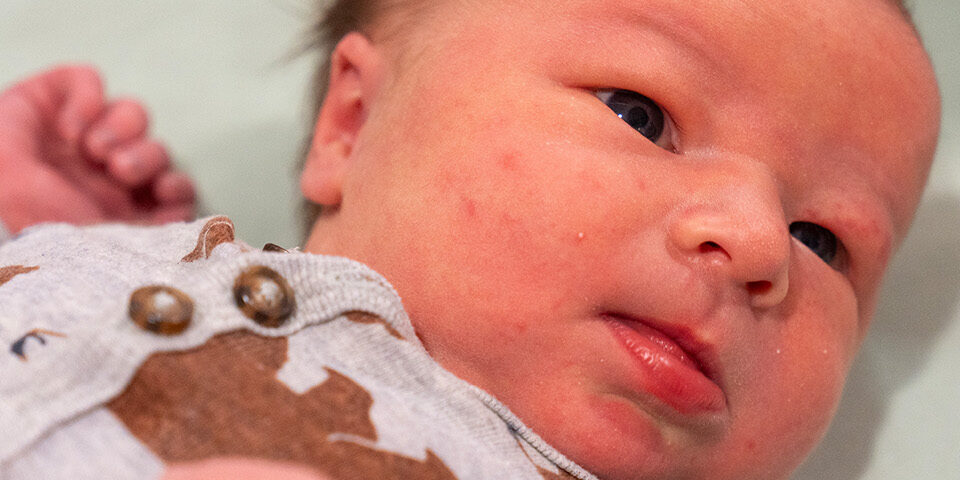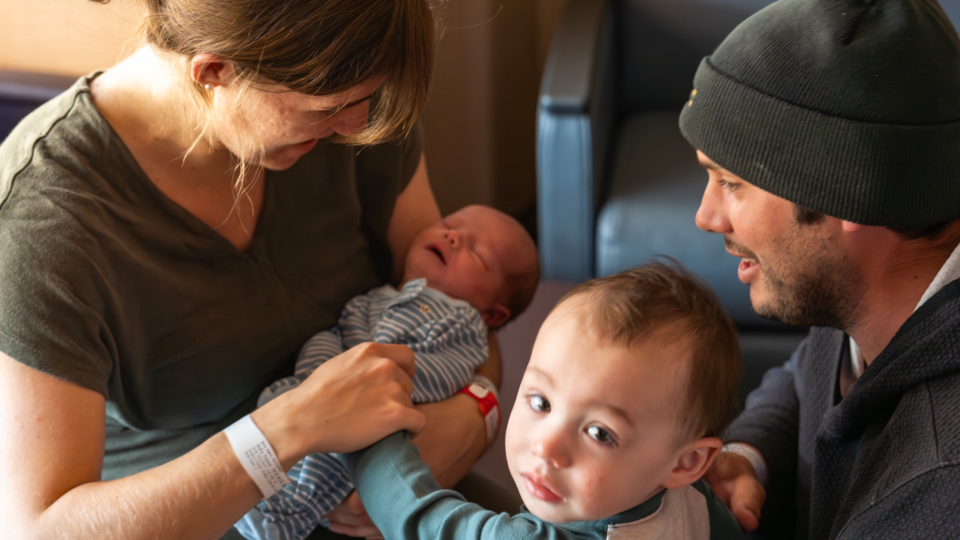- The baby blues do not fade after about a week, or get worse
- Strong feeling of anger and depression come one to two months after childbirth
- Feelings of sadness, doubt, guilty or helplessness increase each week and get in the way of normal functions
- A woman is not able to care for herself or the baby
- Trouble doing tasks at home or on the job
- Change in appetite
- Things that used to bring her pleasure no longer do
- Concern and worry about the baby is too intense or just lacks interest in the baby
- Anxiety or panic attacks occur
- Fears of harming the baby (these feelings are almost never acted on but can be scary)
- Thoughts of self-harm or suicide
A new mother with these signs or symptoms should seek help right away.
Reasons for Postpartum Depression
Postpartum depression is likely a result from body, mind and lifestyle factors combined.
Body Changes
The postpartum period is a time of significant changes in a woman’s body, which can impact her mood and behavior. Following childbirth, there is a sharp decrease in the levels of the hormones estrogen and progesterone, which may trigger feelings of depression in some women. However, the extent to which these changes affect individuals can vary.
Furthermore, many women experience extreme fatigue in the aftermath of childbirth, and it can take weeks for them to regain their normal strength. Unfortunately, new mothers often struggle to get the rest they need, which can be a major contributing factor to depression.
Emotional Aspects
Numerous factors influence a woman’s self-esteem and her ability to manage stress, further exacerbating the risk of postpartum depression. After the birth of a baby, many women experience feelings of loss, which can precipitate depression. These losses may take various forms, including:
-
- Loss of freedom
- Loss of a previous identity
- Loss of the pre-pregnancy body shape
Lifestyle Factors
One of the biggest factors in postpartum depression is a lack of support. She needs the steady support of her partner, family and friends to provide comfort and help support some of the household chores and share in childcare. If a woman lives away from her family or is alone she may be lacking support.
The Role of Myth
Many women have an idea of the “perfect mother” and are likely to feel let down when faced with the day-to day needs of mothering. Here are the thee most common myths about being a mother:
Myth 1: Motherhood is Instinctive
Many women believe they should just know how to take care of a newborn. The truth is new mothers need to learn how to be a mother just like you would learn any other new skill. It takes time and patience.
Myth 2: The Perfect Baby
Babies are born with distinct personalities right from birth. Some are easier to care for than others. They may not be easy to comfort and fussy and women can find it hard to adjust to the new baby.
Myth 3: The Perfect Mother
No mother is perfect
Perinatal Depression
Perinatal depression is a mood disorder that can emerge either during pregnancy or within the first 12 months after childbirth. While many are familiar with postpartum depression, which occurs after delivery, it’s crucial to recognize that depression can develop during pregnancy as well.
This condition is prevalent, affecting approximately 1 in 8 women. Several risk factors contribute to perinatal mood disorders, including:
- History of postpartum depression
- Previous mood disorders unrelated to pregnancy
- Preterm delivery or a sick infant
- Unstable living conditions
- Lack of family support
- Experience of domestic violence
- Substance use
- Breastfeeding difficulties
Distinguishing postpartum depression from the more common “baby blues” is important. The baby blues typically entail short-lived feelings of sadness and mood fluctuations within the first few weeks after childbirth, affecting the majority of women. Symptoms are generally mild and resolve on their own. Perinatal mood disorders, on the other hand, can be triggered by hormonal changes, sleep deprivation, and the stress of caring for a newborn. Family history of mood disorders may also play a role, suggesting a genetic component.
Postpartum Anxiety
While not all women experience postpartum depression, postpartum anxiety is nearly as common, often exhibiting overlapping symptoms. Warning signs include excessive fatigue, tearfulness, self-harming or harming thoughts towards the infant, disrupted eating or sleeping patterns, and a sense of detachment from oneself, as noted by concerned partners or family members. It’s crucial to heed their observations and seek assistance from healthcare providers.
Untreated postpartum depression can escalate into more severe conditions like postpartum psychosis, characterized by hallucinations or thoughts of harming the baby. While rare, early intervention is essential to prevent such outcomes.
Treatment for perinatal depression and mood disorders isn’t solely reliant on medication; counseling, hormone therapy trials, and other interventions may be recommended by healthcare providers. Remember, you’re not alone in this journey. Reach out and talk to someone—support is available, and we’re here to help!




